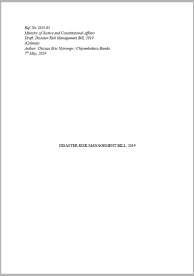
An Act to provide for the comprehensive management of existing and future disaster risks, for the institutional framework and funding arrangements for the management of disaster risk and other matters connected therewith and incidental thereto.
The following is a list of all conten labeled as "Malawi"

An Act to provide for the comprehensive management of existing and future disaster risks, for the institutional framework and funding arrangements for the management of disaster risk and other matters connected therewith and incidental thereto.
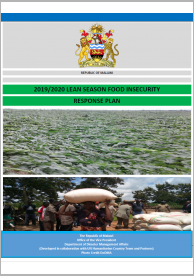
This Lean Season Food Insecurity Response Plan (LS-FIRP), developed by the Government of Malawi in collaboration with its humanitarian partners leveraging the architecture of the humanitarian cluster system, identifies Food Security, Nutrition, Protection, Education and Transport and Logistics clusters as the key priority clusters to address immediate needs.
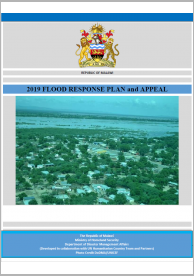
Government and humanitarian partners worked together to develop a response plan based on the analysis of the context, immediate humanitarian need and projected needs for the coming three months given. As a basis for specific sector response plans, overarching strategic priorities have been identified to support effective and timely humanitarian assistance to populations in need in Malawi.
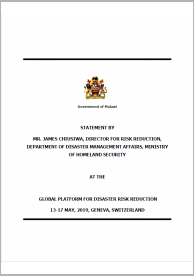
Sixth Global Platform for Disaster Risk Reduction 2019 (Geneva, Switzerland; 13-17 May, 2019).
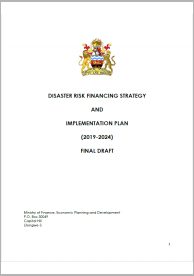
The Government of Malawi (Government) recognizes the importance of mitigating these events and has therefore developed a legal and regulatory framework to strengthen the management of disaster risks. For instance, the Government enacted the Disaster Preparedness and Relief (DPR) Act (1991) which established the Department of Disaster Management Affairs (DoDMA).
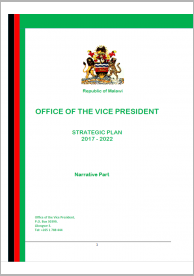
This Strategic Plan focuses on the key strategic outcomes that the Office of the Vice President (OVP) intends to deliver in the next 5 years from 2017. The OVP is constitutionally a delegated office and as such, departments under it may not be the same in the life span of the Strategic Plan. This aspect has been taken into account when developing the Strategic Plan.
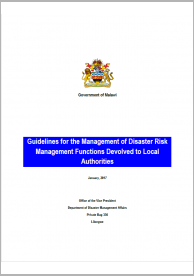
The guidelines and standards are divided into three main sections: the first section provides background information on the devolution process of DoDMA’s functions, the second section is on disaster risk reduction and the third section is on disaster response and recovery. Within each main section are subsections giving guidelines and standards for each devolved function and responsibility.
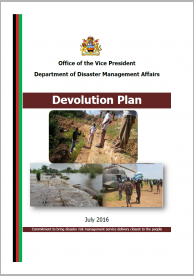
Since December 2010, the structure at the headquarters has been supported by 14 District Disaster Risk Management Offices which are currently manned, on temporary basis, by 13 Assistant District Disaster Risk Management Officers (ADDRMOs) in 13 districts.

The National Climate Change Management Policy is a key instrument for managing climate change in the country of Malawi.
The goal is to create an enabling policy and legal framework for a pragmatic, coordinated and harmonized approach to climate change management.
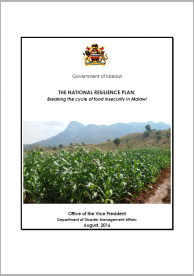
The broad objective of the plan is to help make Malawi resilient to disasters and break the cycle of food insecurity.
To achieve this, the following specific objectives will be pursued: